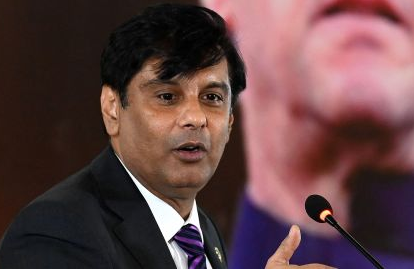Pakistani deep state floating multiple theories to create confusion over scribe’s killing
Pakistan has a history of media suppression and violence against journalists
Post by FAROOQ AHMAD DAR on Wednesday, November 2, 2022

The recent killing of outspoken Pakistani journalist Arshad Sharif in Kenya has once again brought to the fore that anyone critical of the country’s powerful military is not safe even on foreign soil. The 49-year-old investigative journalist had fled Pakistan in August after multiple cases, including sedition charges, were filed against him for criticizing the military. Alleging harassment by state institutions as well as threats to his life he reportedly moved to Dubai in August and later relocated to Kenya.
Sharif, who was once considered close to the military establishment, turned into a fierce critic after the removal of former Prime Minister Imran Khan’s government in April. To cover up his killing multiple theories have deliberately been floated by the deep state actors to create disorder and confusion which is not a new thing in Pakistan. Pakistani establishment never allows focused investigation based on evidence to reach the logical end in such cases. In this case also they will buy time to negotiate with Kenyan police and accord the case a burial.
However, this time politicians from ousted Prime Minister Imran Khan’s Pakistan Tehreek-e-Insaf (PTI) have openly started questioning the fairness of the probe and the circumstances which led to the killing of Sharif. (PTI) Senator Azam Swati vowed to reveal the two uniformed men who orchestrated Sharif’s Sunday Kenya killing. Without naming the two top Pakistani army officers, he vowed to reveal the identity of these two whom he claimed were holding the State hostage, post Sharif’s burial.
Another PTI leader Faisal Vawda claimed that Sharif’s murder was “pre-planned” and “conspired in Pakistan”, adding that the evidence of the crime has been erased. He went on to say that the players of the “conspiracy in Pakistan” were present inside the country and were “internationally connected”.
Economic Times, while quoting unknown sources, claimed Sharif was the target of the establishment for more than one reason - he was working on a documentary on corruption in Pakistan titled ‘Behind Closed Doors’, reportedly an expose of politicians and Generals in widespread corruption in the country.
A report in the British daily, The Guardian has revealed that security services in European countries have warned Pakistani dissidents living across the continent that their lives could be in danger from forces back home. Calling it a ‘hit list’, the newspaper noted that individuals who received warnings include London-based political analyst Ayesha Siddiqa, British-Pakistani YouTuber and columnist Gul Bukhari and Paris-based journalist Taha Siddiqui.
The Human Rights Commission of Pakistan put the fear of state killing in more clear words: “A long, grim record of violent tactics to silence journalists explains why the reported murder of journalist Arshad Sharif in Kenya has sent shock waves through the journalist community.”
Pakistan has a history of media suppression and violence against journalists. Last month even the United States expressed its concern over press freedoms in Pakistan. According to the Committee to Protect Journalists (CPJ), from 1992 till date nearly 100 journalists have been killed in the country.
More than 2650 journalists have been targeted for exposing corruption, crime, reporting on environmental pollution and such like from 1990 to 2020, Pakistani English daily Express Tribune reported recently. As per a report in The Dawn’s, the United Nations has sought a thorough inquiry into Sharif’s death in Kenya.
During a daily press briefing, Spokesman for the UN Secretary-General Stephane Dujarric was asked about the killing of Sharif, he said, “I saw this tragic report of his death. I think the circumstances need to be investigated thoroughly, and the Kenyan authorities said they would, and I think the results of the investigation will be shared quickly.”
(Author can be reached at farooqahmaddar@outlook.com)